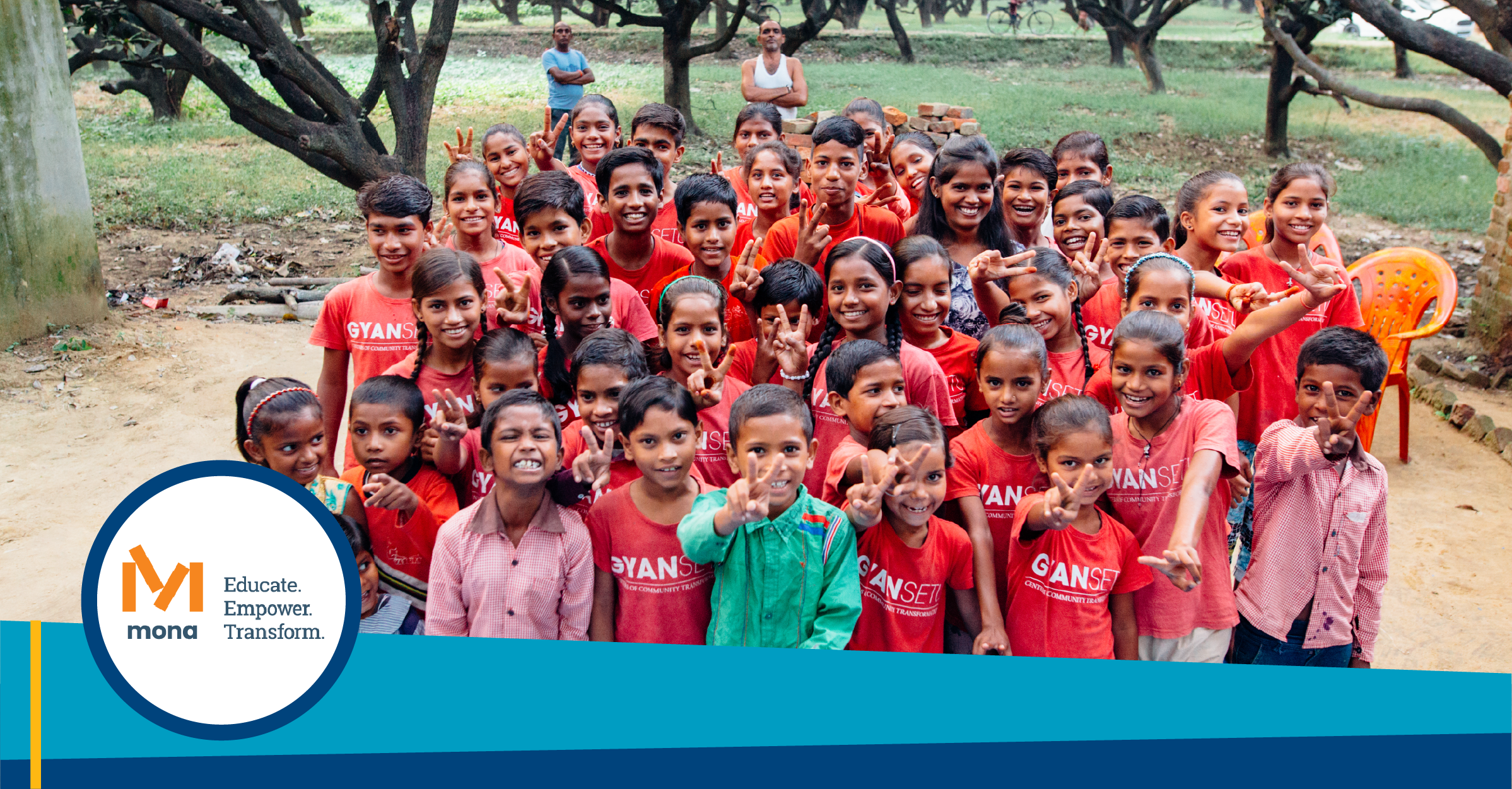Advancing Collaboration with the Mona Foundation
About the Organization
Founded in 1999, the Mona Foundation is a global community of individuals and organizations who believe that the key to alleviating poverty and achieving sustained community transformation lies in education and gender equality. Mona Foundation supports grassroots initiatives around the world that educate all children, empower women and girls, and enable them to transform their communities.
We support schools and programs that serve economically disadvantaged communities. These initiatives focus on academic excellence, fine arts, character development, and service to train capable, ethical, and altruistic students who contribute to the betterment of their families, communities, and ultimately their nation.

Featured Guest:
Mahnaz Javid,
President and CEO
Mona Foundation
Approach to Collaboration
Collaboration is one of the founding principles of the Mona Foundation. While it has become an increasingly popular idea, it’s something we’ve held close to our mission from our start 20 years ago. We have always felt that collaboration was the key to creating and sustaining positive change within a community at a local level. We believe that poverty doesn’t go away because we pour money into a project, but rather that poverty goes away when local people are enabled and empowered to lead their own development. Education is the key to this.
Our success can be attributed to the notion of shared leadership and several of the nine principles of collaboration. We work globally and believe in building bridges, not walls. When we partner with local projects, we seek and receive their own development plans instead of imposing our ideals on them, which leads us to the first principle of collaboration – building trust.
Application of the 9 Considerations for Collaboration
Build Trust
As a globally active nonprofit, we do our due diligence when selecting our projects or educational initiatives. When, for example, we are considering a proposal from an educational institution in India, we don’t accept to support them before we take the trip there and sit down with them. Only once we ensure our values align and get to know their programs do we partner with them.
Without trust, we cannot operate. We build trust by being completely transparent and accountable for the work that we do, and we expect the same from the organizations we support. We trust them, and we encourage them to develop the capacity and capabilities they need to lead their development. Mutual respect and dignity throughout our partnerships, which makes us a trustworthy organization to our donors and collaborators.
We have found that building trusting relationships is critical for the effectiveness of a relationship. We’re currently supporting a project in India that builds, operates, and provides education through one-classroom schools in urban slums or remote villages with no access to water or necessities. As of now, we aid 47 one-room schools in 47 such areas. The cost is $3k a year for one-classroom schools, educating 40 kids, and pays for the construction and the operation of the school for one year including teacher’s salary and school supplies. However, our work took on a new light when due to COVID-19, operations froze and they no longer had food. One day, they wrote to us asking if they could divert the expenses. We were able to respond within three minutes. Today, they have delivered 54,000 meals, 2,000 meals a day, to these extremely impoverished areas. This feat wouldn’t have been possible if we hadn’t built trust and carried out our initial due diligence.
Have a Vision
Our mission is to alleviate global poverty through education, and we’re committed to gender equality. In our work with other organizations that share our vision of education as the key to eliminating poverty, we strive to support these organizations and enable them to become independent. There have been several instances where we’ve started with very small initiatives, and supported their growth plan, and now they are at a point where they no longer need funding from us and are ready to stand on their own. We’re incredibly proud of that record and hope to continue working ourselves out of a job over time by continuing to allow our partners to scale and progress based on their capabilities.
Seek to Assure the Success of Your Collaborators
Our donors know that our partner projects are trustworthy and are consistently learning. We take pride in saying that we operate by continually learning and developing with our partners. We foster a spirit of collaboration, focus on a learning culture, and understand that the best way to learn is through experiences.
Take Stock
As a small organization, we only have three full-time staff and our admin cost is 8%. We leverage help from organizations such as 501 Commons in Washington and Global Washington, which provides support to smaller nonprofits. If we need HR support, we go to them. Since we work across 12 countries, taxes become complicated, so we leverage their expertise in different areas. We’ve taken stock; we know what we’re good at and we know what we need. And being able to get assets at a reasonable cost through collaborating with these other organizations allows us to focus on acting professionally and being great at what we do without spending the money.
Start Small
The principle of organic growth is a guiding principle of the Mona Foundation. We intentionally started small and continue to grow incrementally because it builds trust and leaves room for learning from our mistakes.
Fail Fast, and Build Rigorous Feedback Loops
We work very closely with our partner projects and value the relationship of equality, reciprocity, and trust that we have with them. Based on this formula, our feedback loop is incredible and quick. We can catch mistakes, manage, and respond to situations swiftly because of our close-knit partnerships.
Take a Portfolio Approach
Having a portfolio comes with learning from experience and being trustworthy and honest. That’s why since 1999, we’ve been around the globe and supported close to 44 partner organizations in almost 25 countries. After achieving the objectives we had set collaboratively, many of them are now independent of external support. We always remain in touch, but now they’re able to operate on their own.
Consider Non-traditional Partners
Our mission revolves around education, gender equality, and community transformation. Staying focused on our mission is very important for us, but in countries such as Haiti or India, we know we can’t educate a hungry child. When you’re hungry, you can’t learn. Instead of shifting to deliver food or medical services, we work with other like-minded organizations to deliver these services. For example, we work with Barli Institute for Development of Rural Women in Indore, India who are focused on training girls from remote villages through a six-month boarding program. Before starting to learn, they must clear their bodies from parasites, so medical care is essential. Instead of widening our services, we work with like-minded organizations to accomplish our objectives. Our partnerships are vital to our success.
Keep Your Donors Apprised of Your Collaborations
We believe every donor that gives to Mona is our partner: we are the trustees of their goodwill and they are our partners in creating change. That’s why communication with our donors is at the forefront of all that we do. Our donors, large or small, receive the same information from us to help them understand how important they are to our work and operations. We communicate with them as much as possible without spamming their inboxes.
Future Collaborations
We would like to bring a few impact investors to several of the countries we work in and take them on an educational tour. We believe our portfolio is missing partnerships with impact investors, and we would love the opportunity to change their hearts and minds in regards to the way they invest their money. To us, the collaboration model is rooted in changing our philanthropists’ hearts and minds – to show them the realities of what can happen at a grassroots level and the impact they could ignite.
This article was composed by Rachel Romana Liu.

